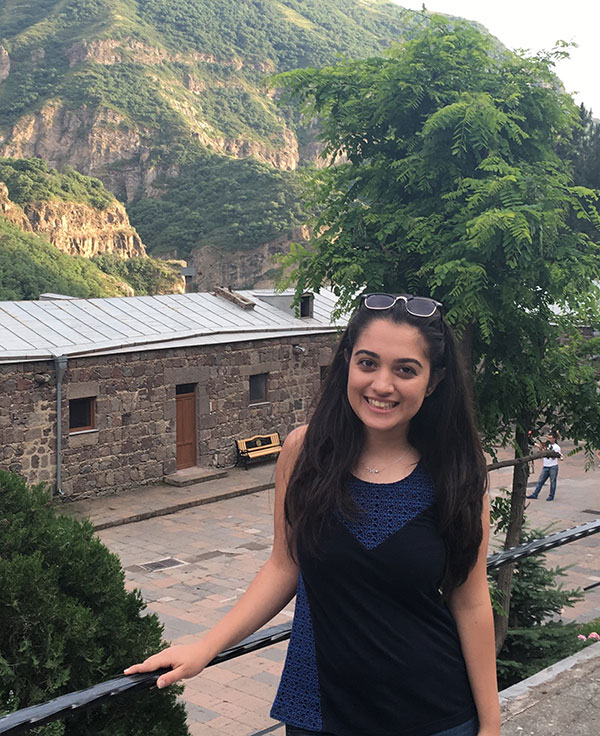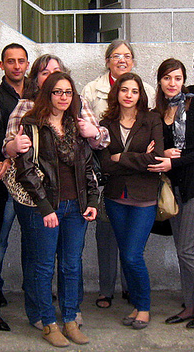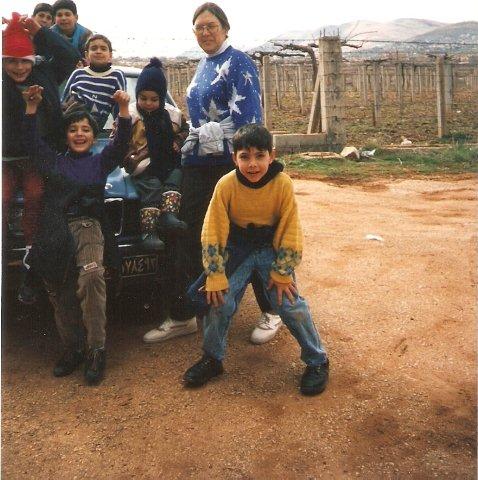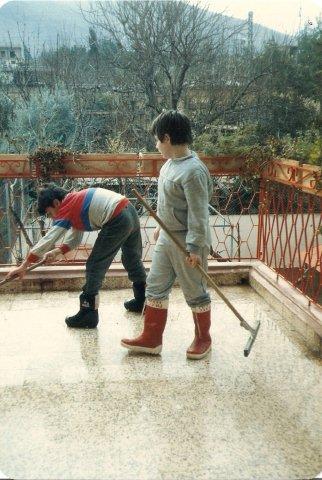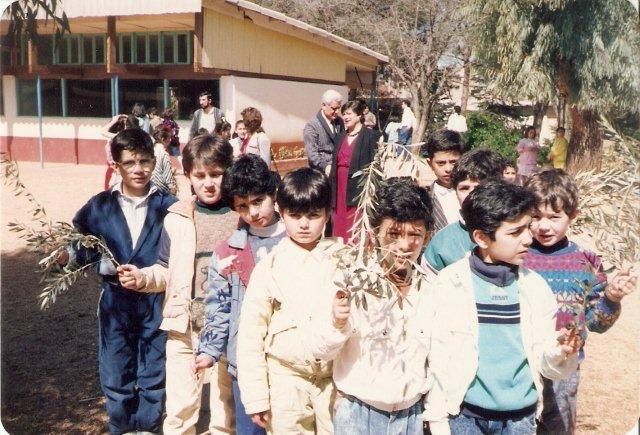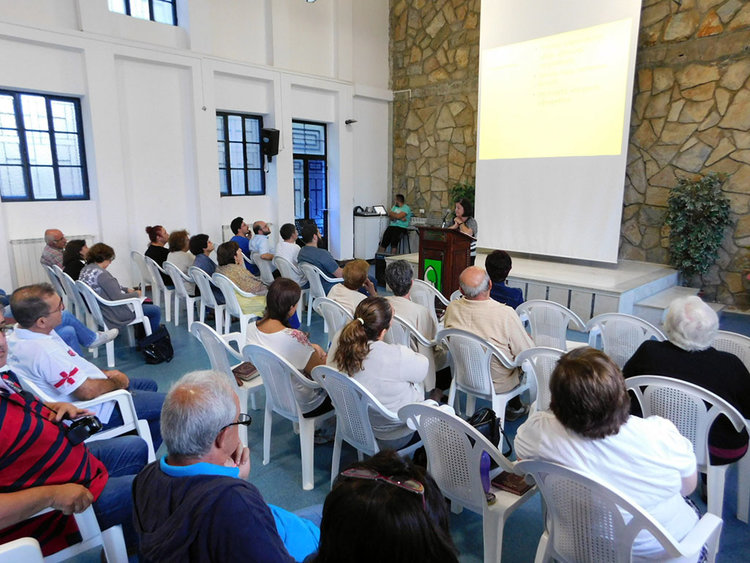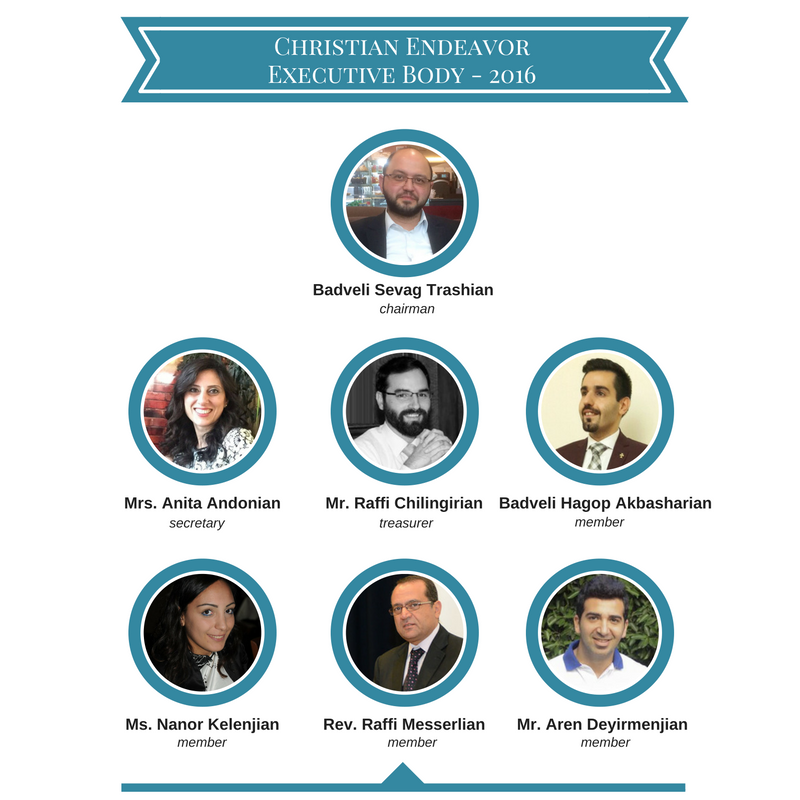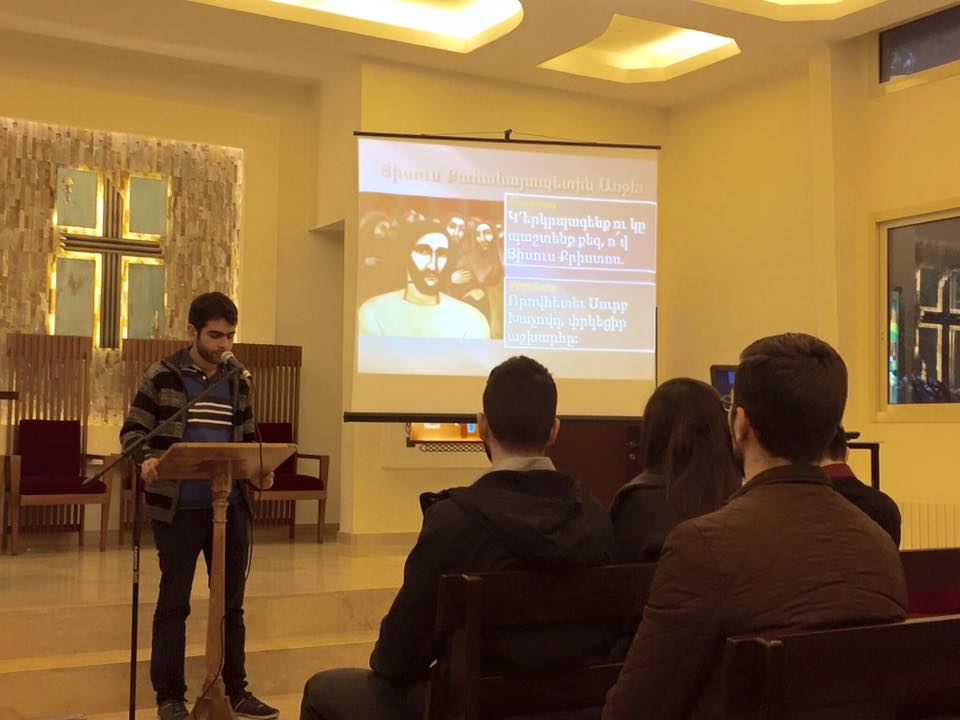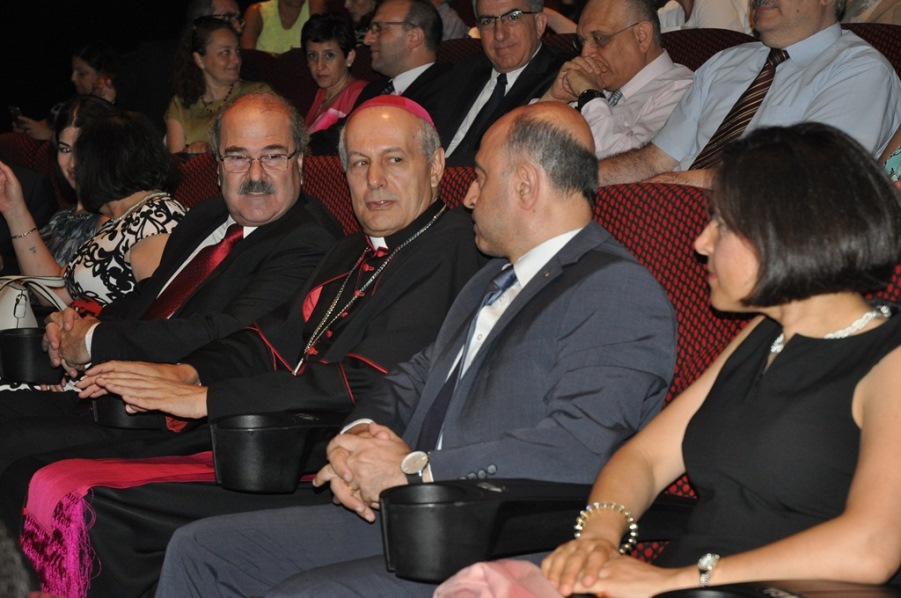Dear friends,
We have been going through a terrible time here in Aleppo, Syria. Worse than any earlier time since Aleppo was dragged into this war back in July, 2012! But in spite of everything here we come with many greetings to you from Syria and especially from Aleppo. We thank you so much for praying for us and for our city Aleppo and for the whole country of Syria. When it comes to projects assisting afflicted Syrian Armenian families we prioritise the needs and try to cover each family’s basic needs. The aid-packets also reach families in different Syrian cities and towns, but as the situation in Aleppo is the worst we cannot but help locally as much as possible. Below we present you our ministries and their social assistance during the last four years:
1-Food Ministry: We as the Armenian Evangelical Community in Syria distribute food parcels on a monthly basis to 300 Armenian Families in Aleppo.
2-Milk Ministry: We provide milk on a weekly basis to 50 malnourished students in our Schools as well as we provide milk twice a year to 300 Armenian families in Aleppo.
3-Financial Aid to University Students: We distribute monetary gifts to 35 Armenian University Students in Aleppo to cover some of their educational expenses.
4- Bethel Polyclinic Ministry: During the whole year we also provide medical assistance for the sick. As we have told you before we have established “Bethel Polyclinic” to assist people who are in need of medical checkups and medical analyses and provide medication for chronic patients without payment. Bethel Polyclinic” has specialists in: General Surgery, Internal Medicine, Diabetes, Otolaryngology, Pediatrics, Orthopedics, Cardiology, Urology, Gynecology and Radiology. We are planning to extend the ministry of Polyclinic into different other specialties soon. Through “Bethel Polyclinic” We have also distributed medical eye-glasses to 150 individuals.
5- Water Ministry: During the times when no water at all reaches people’s homes we distribute drinkable water, each time 1,000 litres, to the homes of three hundred families. We have also helped 10 families financially to place water tanks on the roof of their buildings during this period of war.
6-Household Essentials Distribution: Periodically we have also provided 300 families with blankets, bed sheets and pillows.
7- Clothes Ministry: Periodically we have provided 300 children with winter clothes and sports shoes.
8- Cooking Gas Ministry: Periodically we have also distributed cooking-gas to 300 families.
9- Provide Living Expenses for Evangelical Families: Since July 2013 we provide financial subsidies to 135 families on a monthly basis, as well as the Social action committee of the Armenian Evangelical Churches in Syria also provides financial subsidies to 200 other families too.
10- Scholarship for Armenian Students: Every year since 2013 we also provide scholarships for 150 Armenian Students at Bethel Secondary School.
11-Financial Assistance for Displaced Families: We have helped 20 displaced families who have lost their homes and afterwards we help with their rent.
12-Christmas Camp; Easter Programs: On December 2015, we distributed winter pyjamas to 500 individuals as a Christmas gift.
13- Emergency Relief: On top of the monthly food rations we have also provided milk, chicken, eggs and cheese and vegetables to 300 families as an emergency relief when the City of Aleppo has been under siege.
14-Kids Program: Special program is being initiated to help children cope with the trauma situation and leading constructive activities to nurture their development through means of creating a healthier environment, which is quite a challenge.
15- Immediate Renovation Program: We have assisted 20 families whose houses have been destroyed from bombings.
16- Hygiene Distribution: Periodically we have distributed hygiene parcels to 300 families during the last three years.
17- Assistance for Electricity Payments: Every month since 2014 we give monetary gifts to three hundreds of families in order to pay for electricity from private generators.
18- Fuel Ministry: Periodically we have given monetary gifts to 300 families in order to buy fuel to heat their homes during the cold winter season.
19- Development Program: As a development program we have encouraged the ladies who we are in touch with to work on handicraft. We buy them wool so that they can prepare winter-hats and scarves and as an appreciation for their hard work we have given each one of them monetary gifts.
20- Visits:
*We pay home-visits to the single elderly people on a monthly basis.
Yes, we do mostly help the Armenian community in Aleppo and elsewhere like in Kessab, Homs and Damascus. We are Evangelicals but that does not mean that our help is only for Evangelicals. About one-third of the help goes to Evangelical families while two-thirds go to families from the Armenian Apostolic Church. Yes, some of the help also reaches needy Armenian Catholic Families as well as Arab Families in our neighbourhood. Through Bethel Polyclinic we do, however, meet needs of people that we have never been in touch with, as we provide so many much-needed services in a city with few doctors and even fewer hospitals and clinics. As we have told you before: "Our Help is a Reaction to negative Actions in our city!" With a Church and a School in our own compound and add to it a music conservatory you will realise that we reach hundreds of families on an almost daily basis.
God’s Blessings and Goodness,
Rev. Haroutune Selimian
President
Armenian Protestant Community in Syria
Tel: +963 21 4642 450 +963 21 4467 528
Fax: +963 21 460 73330
Email: hselimian@gmail.com
Bethel Church Facebook Account: https://www.facebook.com/bethel.church.180 YouTube address: http://www.youtube.com/results?search_query=Rev.%20haroutune%20selimian &sm=3






















